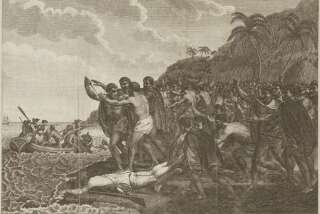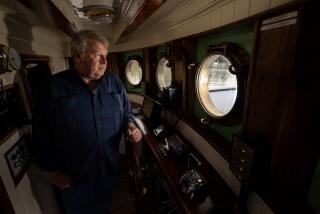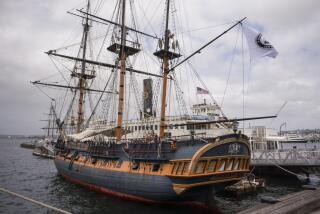NONFICTION - June 27, 1993
- Share via
DISPATCHES FROM THE PACIFIC CENTURY by Frank Viviano (Addison-Wesley: $21.95; 252 pp.). The virtues and failings of this anecdotal jaunt through “the new Asia” can best be seen in a story San Francisco Chronicle reporter Frank Viviano tells here about Yves, a French entrepreneur who tries to transform a Chinese ferry service, which “came and went whenever its crew felt like it,” into an efficient form of transportation. Yves’ innovation is to pay the crew members a bonus for every crossing. It works--ferry pilots begin crossing the channel at a breakneck pace--but there’s one problem: They don’t stop long enough to load and unload their cargo. At one point the ferry pulls off just as a frantic trucker struggles to come on board. “The truck sank with a loud gurgle to mid-window,” Viviano writes, “then settled into the mud directly in front of the loading ramp. It was the end of the experiment.”
It’s an amusing story, to be sure, told with color and verve, but is it, as Viviano suggests, truly representative of Chinese habits and culture? And was Yves, painted here as a man who thinks with “calm, careful, unassailable logic,” so stupid that he didn’t think of paying bonuses only when cargo had been safely handled? Viviano’s casual style often leads him to similarly sweeping, unsupported interpretations; e.g., “China, for most Chinese . . . was a prolonged, drowsy daydream. People worked when the urge moved them, which often meant not at all.”
For the record:
12:00 a.m. July 18, 1993 TANGLED DISPATCH
Los Angeles Times Sunday July 18, 1993 Home Edition Book Review Page 11 Book Review Desk 1 inches; 26 words Type of Material: Correction
A June 27 In Brief review of “Dispatches From the Pacific Century” misidentified Singapore’s former prime minister. The reference should have been to former Prime Minister Lee Kuan Yu.
Viviano’s writing, nevertheless, is always lively and sometimes poignant, as when he profiles those Asians struggling to chart their own road away from a repressive past. We meet Singapore’s President Sukarno, for example, who managed to “plunk a Rockefeller Center on landfill in what had been a malaria-infested swamp,” and Wang Leng Vang, who loses his family, probably for good, when he is unable to follow the itinerary of a bus they have boarded.


